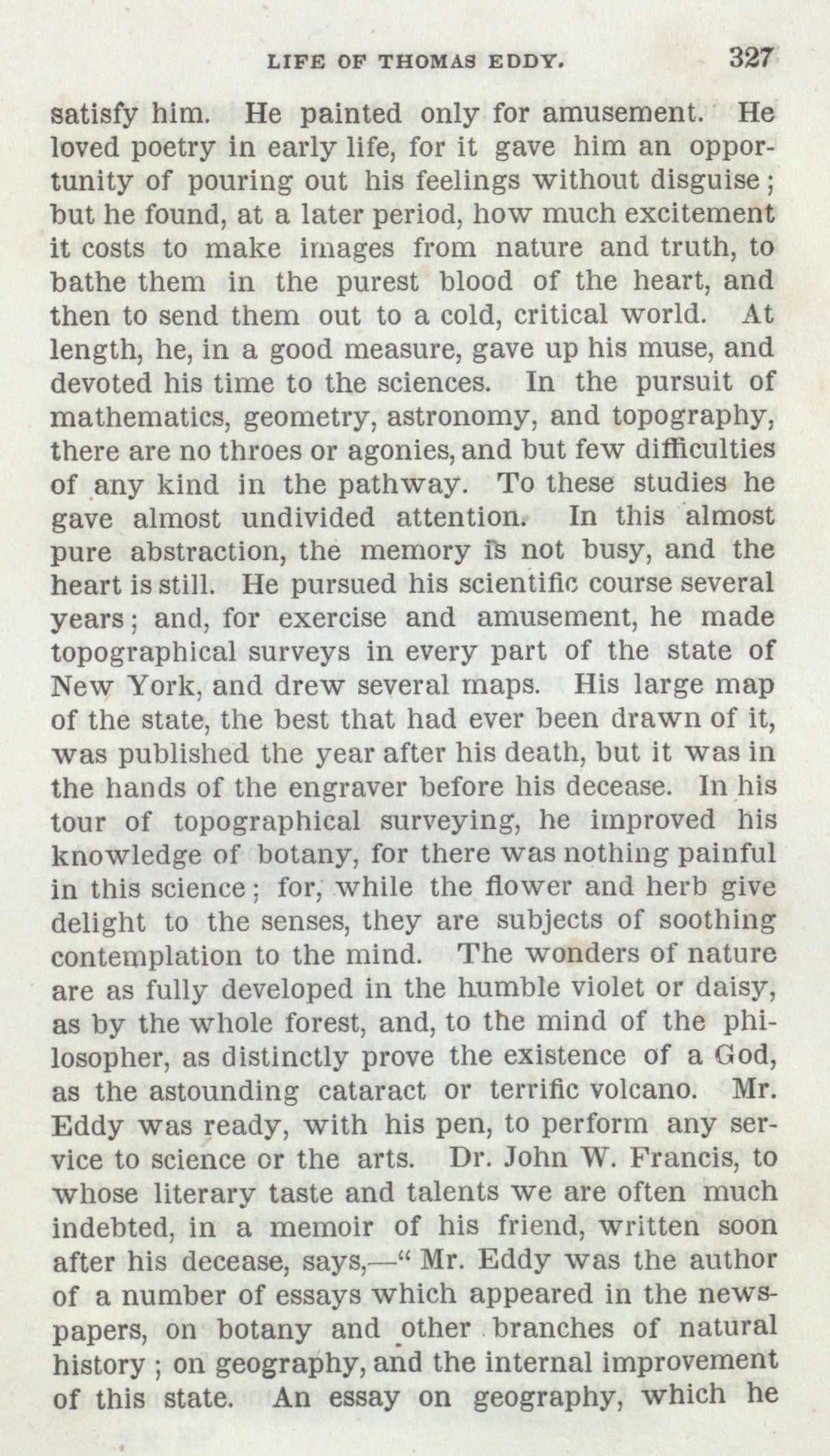satisfy him. He painted only for amusement.
He
loved poetry in early life, for it gave him an oppor-
tunity of
pouring out his feelings without disguise;
but he found, at a later period,
how much excitement
it costs to make images from nature and truth,
to
bathe them in the purest blood of the heart, and
then to send them
out to a cold, critical world. At
length, he, in a good measure, gave up his
muse, and
devoted his time to the sciences. In the pursuit
of
mathematics, geometry, astronomy, and topography,
there are no throes
or agonies, and but few difficulties
of any kind in the pathway. To these
studies he
gave almost undivided attention. In this almost
pure
abstraction, the memory is not busy, and the
heart is still. He pursued his
scientific course several
years; and, for exercise and amusement, he
made
topographical surveys in every part of the state of
New York
of the state, the best that had ever been drawn of it,
was published the year after his death, but it was in
the hands of the engraver before his decease. In his
tour of topographical surveying, he improved his
knowledge of botany, for there was nothing painful
in this science; for, while the flower and herb give
delight to the senses, they are subjects of soothing
contemplation to the mind. The wonders of nature
are as fully developed in the bumble violet or daisy,
as by the whole forest, and, to the mind of the phi-
losopher, as distinctly prove the existence of a God,
as the astounding cataract or terrific volcano. Mr.
Eddy
vice to science or the arts. Dr. John W. Francis
whose literary taste and talents we are often much
indebted, in a memoir of his friend, written soon
after his decease, says,—
of a number of essays which appeared in the news-
papers, on botany and other branches of natural
history; on geography, and the internal improvement
of this state. An essay on geography, which he

